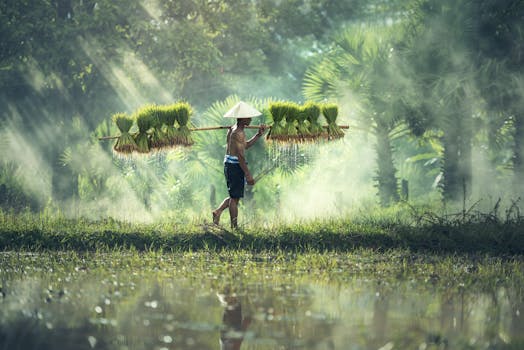Finding Culture in a New Place
One of the most enriching aspects of settling into a different environment is discovering its culture. Culture encompasses the traditions, customs, language, food, art, and social norms that define a community. Grasping these aspects cultivates a feeling of community while enhancing our appreciation for the rich variety and individuality found in human experiences. Whether relocating to another country or a different region within your own, immersing yourself in the local culture can transform your perspective and make the transition more fulfilling.
Understanding Local Traditions and Customs
Local traditions and customs form the backbone of any culture. They often reflect historical influences, religious beliefs, and societal values that have shaped the community over time. To truly connect with a new place, it’s important to observe how people celebrate festivals, practice rituals, or even approach daily routines.
In Japan, respecting hierarchy and bowing as a form of greeting are deeply ingrained in their cultural etiquette. In contrast, countries like Spain emphasize family gatherings during long meals, especially at siesta time. Learning about these customs helps to avoid misunderstandings and demonstrates respect toward locals.
An effective approach to connect with these customs is to get involved in local gatherings. Volunteering at local fairs or attending public celebrations offers firsthand insight into what matters most to the people around you.
The Role of Language in Cultural Integration
Language is a powerful tool for understanding and connecting with a new culture. Even if you’re not fluent, learning basic phrases or expressions can go a long way in building rapport with locals. It also provides access to stories, literature, and oral histories that enrich your knowledge of the area’s identity.
If you move to France and make an effort to speak French (even if imperfectly) you’ll find that many locals appreciate your willingness to connect through their native tongue. Similarly, learning regional dialects in multilingual countries like India enhances your ability to understand subtle cultural nuances.
- Start with simple greetings and commonly used phrases.
- Use language-learning apps like Duolingo or Babbel for daily practice.
- Attend language exchange meetups for conversational practice with native speakers.
Cuisine as a Gateway to Culture
Food serves as both a literal and metaphorical table where cultures gather. Exploring local cuisines introduces you to flavors and culinary traditions tied closely to the region’s history and resources. Eating like a local allows you to engage with the community while learning about their way of life.
Relocating to Mexico presents a flavorful journey that goes beyond simply enjoying authentic tacos al pastor or tamales; it offers a chance to immerse yourself in rich traditions that have been crafted over centuries through the fusion of Aztec and Spanish heritage. Similarly, in Italy, experiencing regional variations in pasta dishes sheds light on how geography impacts ingredients and cooking styles.

Engaging in culinary classes or food excursions can strengthen this connection by providing insights into cooking techniques, the history of ingredients, and the cultural significance associated with different meals.
Art and Music: Expressions of Identity
The arts serve as vivid expressions of identity within any culture. Paintings, sculptures, music, dance, theater, these creative outlets capture emotions and tell stories unique to each community.
Attending local art exhibitions or music performances can be an inspiring way to immerse yourself in cultural traditions. Flamenco dancing in southern Spain reflects passion and resilience rooted in Andalusian history. Meanwhile, exploring street art in cities like Berlin unveils layers of political commentary interwoven with aesthetic beauty.
If museums or galleries are available near your new home, they often provide curated perspectives on regional artistry that deepen your understanding further.
Building Connections with Locals
No amount of research can replace the insights gained from engaging directly with local residents. Conversations with neighbors or coworkers often reveal hidden gems about their culture that aren’t documented in guidebooks or online resources.
Establishing friendships with people who grew up in the area also opens doors to experiences you might not encounter otherwise, such as family dinners or private events showcasing cherished customs.
Joining hobby groups or attending networking events creates opportunities for organic connections while easing feelings of isolation common when adapting to unfamiliar surroundings.
Adapting Your Perspective
Adopting an open mind is crucial when immersing yourself in a new culture. What may initially seem strange could later become endearing once understood within its context. Being willing to adapt your behavior without compromising personal values helps create mutual respect between yourself and members of your new community.
This mindset becomes particularly important when moving across countries where cultural differences may feel more pronounced than regional relocations within one nation. Embracing these differences enriches both personal growth and cross-cultural understanding.
A Practical Guide: Steps for Cultural Immersion
| Step | Action |
|---|---|
| 1 | Research local history through books or documentaries before arrival. |
| 2 | Participate actively in community activities such as festivals or workshops. |
| 3 | Engage with locals through language practice sessions or shared hobbies. |
| 4 | Explore authentic local cuisine by dining at independently-owned restaurants or engaging in community food festivals. |
| 5 | Visit museums or cultural centers dedicated to regional art forms. |
| 6 | Foster dialogue by thoughtfully asking about different cultural traditions and practices. |
Cultural immersion extends beyond surface-level observations; it fosters empathy, adaptability, and an expanded worldview. Experiencing how others live broadens your perspective on what it means to be human while challenging preconceived notions about other ways of life. The act of finding culture in a new place isn’t solely about adaptation; it’s about mutual enrichment.